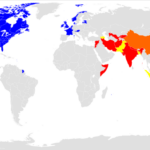Unionization efforts could reshape the auto industry
- UAW aims to double in size by organizing non-union auto makers
- Targeting Tesla, Toyota, Hyundai, and others
- Organizing efforts cover nearly 150,000 autoworkers across at least thirteen automakers
- Unionization could benefit Ford and GM by reducing labor costs
- UAW faces challenges as some companies, like Tesla, have different approaches to labor relations
The United Auto Workers (UAW) is looking to double in size by organizing non-union auto makers, including Tesla, Toyota, Hyundai, and others. The UAW aims to add approximately 150,000 autoworkers across at least thirteen automakers. This move comes after the UAW recently reached new labor agreements with the Detroit Three auto makers, which include base wage increases and other gains for workers. If successful, unionization could benefit Ford and GM by reducing labor costs. However, the UAW faces challenges as some companies, like Tesla, have different approaches to labor relations.
Public Companies: General Motors (GM), Ford Motor (F), Stellantis (STLA), Toyota Motor (TM), Tesla (TSLA), Hyundai Motor (HYMTF)
Private Companies:
Key People: Shawn Fain (United Auto Workers President), Elon Musk (Tesla CEO)
Factuality Level: 7
Justification: The article provides information about the UAW’s plans to organize non-union auto makers and the progress of their organizing efforts. It includes quotes from UAW President Shawn Fain and information about the labor agreements reached with the Detroit Three auto makers. The article also mentions the process of forming a union and the potential impact of unionization on auto makers. However, there are some statements that could be considered opinion, such as Elon Musk’s views on unions.
Noise Level: 3
Justification: The article provides relevant information about the UAW’s efforts to organize non-union auto makers and the potential impact on the industry. It includes quotes from UAW President Shawn Fain and Tesla CEO Elon Musk, providing different perspectives on unionization. The article also mentions the potential benefits for Ford and GM if unionization succeeds. However, there is some repetitive information and the inclusion of the text-to-speech technology feature is irrelevant to the content of the article.
Financial Relevance: Yes
Financial Markets Impacted: The potential unionization efforts by the UAW could impact the financial performance of auto makers, particularly Ford and GM. Wall Street analysts suggest that these companies pay more for labor compared to non-union auto producers, which could affect their profitability and investment in technology and new products.
Presence of Extreme Event: No
Nature of Extreme Event: No
Impact Rating of the Extreme Event: No
Justification: The article discusses the UAW’s plans to organize non-union auto makers, which could have financial implications for the companies involved.
 www.marketwatch.com
www.marketwatch.com 





